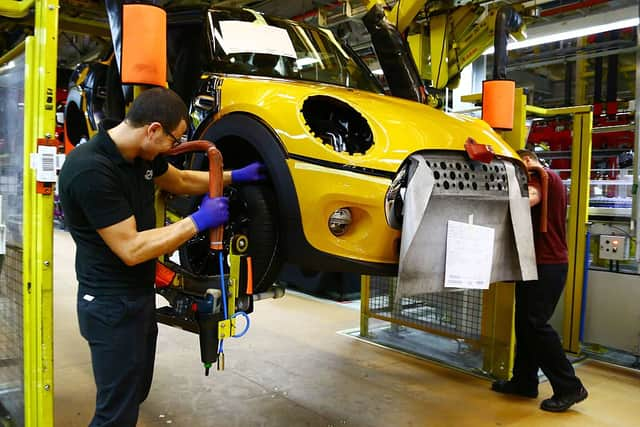New car market slumps to 23-year low as chip shortage throttles sales


The UK’s new car market slumped to its weakest September in more than two decades, with registrations down almost 35% in what is traditionally a bumper month for dealerships.
The latest data from industry body representing car makers and retailers show that September 2021 was the worst month for new registrations since 1998, before the two-plate system was introduced.
Advertisement
Hide AdAdvertisement
Hide AdJust 214,312 new cars were registered in what is traditionally the second-busiest month for the market, down 34.4% on September 2020 when dealerships were just beginning to recover from lockdown, and down nearly 45% on the 10-year pre-pandemic average.
The poor performance has been blamed on the ongoing semiconductor shortage, which experts said was “crippling” the automotive industry. Some manufacturers are now quoting waiting times of up to a year for certain models as they struggle to secure components.


Mike Hawes, chief executive of the Society of Motor Manufacturers and Traders (SMMT) which compiled the data, called the figures “desperately disappointing”.
He said: “Despite strong demand for new vehicles over the summer, three successive months have been hit by stalled supply due to reduced semiconductor availability.”
Advertisement
Hide AdAdvertisement
Hide AdIndustry experts said the problems in the new car market were having a knock-on effect on used cars and was likely to continue for months.
Jim Holder, editorial director of What Car?, said that the impact of the parts shortage was likely to continue until at least mid-2022.
He commented: “September plate-change is normally a peak sales month for the industry, yet this year’s results demonstrate the crippling impact the ongoing microchip shortage has on the sector.
“Manufacturers are struggling to meet demand, with some admitting waiting times for certain models have been pushed to beyond a year. For buyers, this means longer waiting times on new cars than many are willing to accept.
Advertisement
Hide Ad